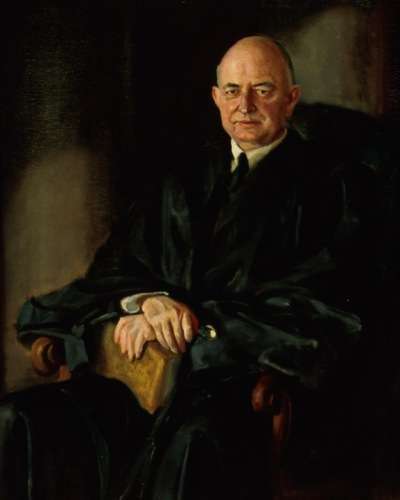
Thomas Jefferson High School for Science and Technology in Fairfax County, Virginia, is one of the most elite public schools in the country. In 2019, U.S. News and World Report ranked it as America’s best overall high school.
It also educates a substantial racial minority population: 70 percent of TJ’s students are Asian-Americans—many of them children of immigrants.
You might think progressive education officials would celebrate this. Instead, they have decided to jettison the school’s famously tough admissions test in favor of a “holistic” (i.e., subjective and arbitrary) system that will permit officials to reject Asian-American students in favor of less-deserving students who belong to other racial categories.
The Washington Post reports:
Under the new rules, Fairfax will first identify all eighth-graders who meet certain academic criteria: those who achieve an unweighted GPA of at least 3.5 while taking Algebra I or a higher-level math class, in addition to math and science honors courses and either an English or social studies honors course.
Qualified eighth-graders will be invited to complete a math or science problem-solving essay, as well as a “Student Portrait Sheet.” Fairfax staffers will review these, taking into account “experience factors” including whether students are low-income, have special needs or come from households that do not speak English.
Ultimately, 550 middle-schoolers will receive offers each year to attend the prestigious STEM school, which is often ranked the No. 1 public high school in the nation. In a bid to ensure geographical diversity, a certain number of seats will be allotted to every middle school in Fairfax County, to be filled by eighth-graders at that school who meet criteria.
The cap on how many students can enter TJ from each middle school is arguably the most impactful: There are three middle schools with predominantly Asian-American student populations that typically account for a sizable proportion of TJ’s admissions. Limiting the number of admissions letters available to the students at these schools will in effect artificially limit the Asian-American applicant pool.
The new admissions policy has drawn a lawsuit from the Pacific Legal Foundation (PLF), which represents a coalition of parents. These plaintiffs include Harry Jackson, father of one of the six black students who was admitted to TJ in the previous cycle. Jackson understands that under the new policy, additional black and Hispanic students would likely be admitted, but doesn’t see how this is fair to the more qualified Asian-American students.
“As an African American father of a TJ student, I would also like to see more Black and Hispanic students at the school,” he told the Post. “But if those students are not making the grade, the problem isn’t the standards. It’s more likely that the elementary school pipeline is failing to prepare them for the rigors of an environment like TJ.”
In his own op-ed for The Washington Post, Jackson accused the school of treating Asian students as if they were “the wrong kind” of racial minority.
PLF’s lawsuit argues that the new admission plan was clearly adopted for the explicit purpose of curbing Asian enrollment, and is thus unconstitutional.
“The government cannot choose who receives the opportunity to attend public schools based on race or ethnicity,” said PLF attorney Erin Wilcox. “Such actions clearly violate the Fourteenth Amendment’s guarantee of equal protection.”
Fairfax County Public Schools have not yet commented on the lawsuit, expect to note that TJ is committed to maintaining its excellent standards while fostering racial diversity.
One of the most fascinating aspects of the new admissions plan is that the largest beneficiaries would not be racial minorities, but white students. According to PLF, the school district’s own projections showed that white enrollment would increase more substantially than Black or Hispanic enrollment. And if the school board succeeded at its stated goal of “proportional” racial representation among the student body, white enrollment would increase even more dramatically. As Ilya Somin noted in a post for the Volokh Conspiracy:
The student body at TJ is currently 73% Asian-American, 1% black, 3.3% Hispanic or Latino, 6% other, and 17.7% white. If, as County school officials indicated, the goal of the new policy is to get a student body that is “proportional” to Fairfax’s population demographics, the biggest change would be an increase in the percentage of non-Hispanic whites from the current 17.7% to somewhere between 50 and 60%, though the percentage of blacks and Latinos would also increase. The plaintiffs’ analysis estimates that the new admission system would, in fact, result in a student body that is roughly 31% Asian-American, 5% black, 8% Hispanic or Latino, 48% white, and 8% other.
In the name of helping racial minorities, officials are adopting a plan that would boost whites at the expense of Asian Americans.
This debate is unfolding at a time when anti-Asian animus has taken center stage, thanks mostly to a perception that anti-Asian hate crimes are rising. Any serious effort to confront systemic racism against Asian Americans must grapple with the fact that the admissions policies of elite educational institutions—not just TJ, but also Harvard and Yale—deliberately discriminate against Asians. Such policies should anger anyone who thinks anti-Asian bias is a pressing issue.
from Latest – Reason.com https://ift.tt/2PNMumI
via IFTTT




